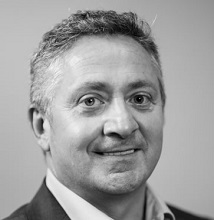
I officially started my term as Royal Society EiR in August 2018. The Royal Society introduced this funding initiative with the hope and expectation that introducing more experienced entrepreneurial business people into the academic environment might improve the passage of the University’s inventions and discoveries into tangible and impactful businesses for the benefit of the academics, the University and for UK plc.
We have an enviable record in UK academia in producing world class research and associated high-impact publications, but lag many other developed nations in translating this intellectual asset into commercial value.
On observing, meeting and listening to many of the academics within the life sciences sector of the University, the high level of academic talent operating in our institution was quickly verified. There are many great ideas and questions in investigation, and there are a growing number of valuable discoveries that have been made and are seeking transition to real-world, scalable impact. I am actively working with 6 separate University teams in support of delivering a fascinating range of commercialisation ideas.
However, I soon found myself asking why haven’t more of these ideas and discoveries found their way to commercial success over the past 10 years. My conclusion has been that whilst we have world-class technical talent (scientists, mathematicians, medics, academic researchers), we have a gap in supply of experienced commercial talent in our region, and we equally have a gap in sources of early stage capital to accelerate great ideas into tangible propositions. I have given some thought and focus to addressing these two gaps.
A successful business requires a great idea, a strong team capable of first rate execution on both commercial and technical strategies, and the funding to provide the resources and the time for delivery. The lack of local and regional funds leaves the academics with an inordinate time spent chasing funding (usually in London) and effectively delaying commercial execution.
I have equally been encouraged to find that there is a substantial population of highly experienced and senior commercial talent that has located to the region for lifestyle reasons (e.g. sailing, surfing, etc.). This group develop a great loyalty to the region and are motivated to support the development and acceleration of a fresh and vibrant commercial culture in the South West. We do have the right commercial talent and experience locally, but we need to find a better mechanism to engage with this talent pool.
To that end, I am progressing an idea, together with and originally envisioned by Sir Dick Olver (former Deputy CEO of BP plc and Chairman of BAe) and Richard Haycock (Senior VP of Oracle Corporation), to create a SW fund to invest in, and to energetically support early stage businesses in the region. This is a work in progress, but may offer a format and go some way to addressing both the gaps in local funding and commercial talent. It is a hugely exciting prospect to think that we can give life to this vision over the next 12 months. A thriving commercial ecosystem would bring sustainable prosperity to the region. Watch this space!